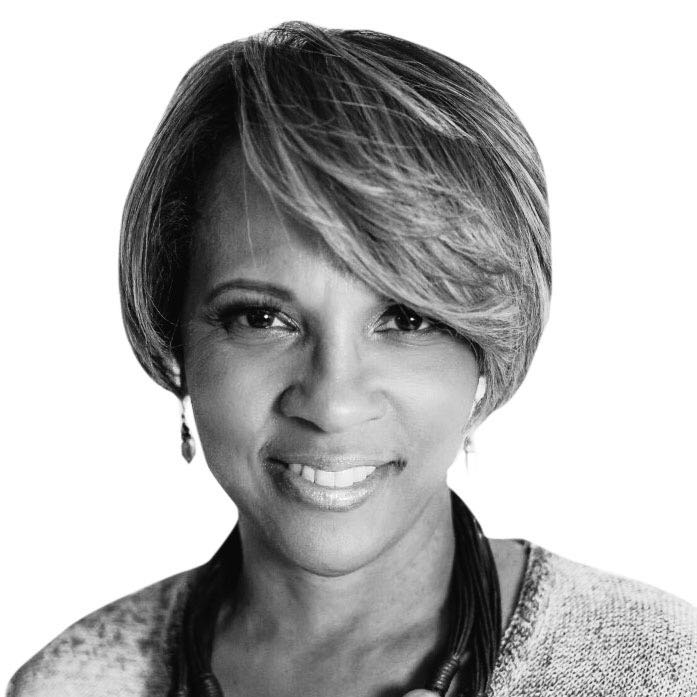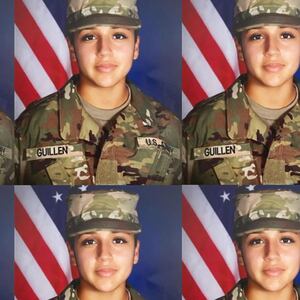I come from an “Army strong” family. My maternal grandfather, Samuel E. Smith, was just 17 when he enlisted to fight in World War II. He, of course, entered a segregated Army in 1945, but by the time he retired in the 1970s, it was a very different Army, one full of opportunity for not only Blacks but also for women.
My maternal uncle Doug Ward fought in the jungles of Vietnam, and to this day still bears the scars and disabilities of war. My father, an Army NCO, served in Europe at Checkpoint Charlie in West Berlin during the same era. I was born in Munich on an Army base in the late 1960s.
My brother was the first officer in the family and was deployed to the Middle East right after 9/11. He was the XO (executive officer) at Ft. Story in Virginia, near Virginia Beach. I have many cousins and uncles who also served, male and female alike. I am proud of them all. Proud to come from a family of soldiers.
ADVERTISEMENT
So when I heard the story of PFC Vanessa Guillen, who was just 20 years old when she was murdered near her Army base, Fort Hood, terror struck my heart, because she was killed by a fellow male soldier. Vanessa wanted nothing more in her young life than to serve her country. Wear its uniform. And proudly defend the flag of the United States of America.
That she was murdered so brutally, and after she had complained of being sexually harassed to her chain of command, should outrage us all. Vanessa was not killed in action on some far off battlefield by the enemy. She was not killed by mortar fire or a caravan bomb. She was not killed by an accident in training exercises on base simulating war games. Vanessa was killed by some pervert, a fellow soldier, who could not control his desire to have her and was apparently aided and abetted by an accomplice to destroy her petite body.
Her family was at the White House on Thursday, lobbying President Trump on helping get the proposed #IAmVanessaGuillen bill passed. The bill would let service members file sexual assault and harassment claims to an independent third party, rather than up their chain of command. Doing the latter is fraught with peril for the women who make such allegations. They can face retaliation, condemnation, isolation, and worse.
For its part, Fort Hood has commissioned an independent panel to review and to “determine whether the command climate and culture at Fort Hood, and the surrounding military community, reflects the Army's values, including safety, respect, inclusiveness, and a commitment to diversity, and workplaces and communities free from sexual harassment.” The panel, according to an Army statement, “will review historical data and conduct interviews with military members, civilians and members of the local community.”
Tragically, Vanessa’s story is not the first of this kind. And tragically, it will not be the last. I remember another young female office named Lisa Bryant, the 21-year-old daughter of a family friend. Her father, Wilbert Bryant, worked for President George W. Bush and is now a retired colonel. Lisa was a young officer, a new second lieutenant, cum laude graduate of Princeton University, with her whole life ahead of her too. She was assigned temporarily to Ft. Bragg and that is where she became the target of unwanted sexual advances by an Army NCO, who shot and killed her.
On July 22, 1994, her assailant, Sgt. First Class Ervin Graves, was convicted of premeditated murder; he also was convicted of felony murder, attempted rape and assault while attempting to commit rape. A prosecutor during the trial said that Graves planned to rape Bryant but had to kill her when she tried to escape. He used a .357 Magnum. He was found guilty and sentenced to life automatically.
I share Lisa's story to make a point, one we all know well: Women who enter the military, whether as enlisted soldiers or as officers, face not just a tougher road to proving themselves in readiness, but they have the extra burden of trying to ward off unwanted sexual advances and worse, assaults.
I interviewed no fewer than two dozen women I know who have served in the military dating back to my high school graduation in 1985 through the early 2000s, and every single one of them had either dealt with sexual harassment (which, if they reported it, produced blowback that was often worse) or they receive 100 percent service-connected pay due to their sexual assaults, as is true of two friends of mine.
We have to look no further than a sitting U.S. senator, Martha McSally of Arizona, who was in the Air Force and was a victim of sexual assault. McSally, who spoke about this incident only in the past year, says she was raped while in the Air Force by a fellow airman.
This violation of women must end. We as women, and worse, the military, have come to accept a certain level of “sexual assault” as normal. And that is not OK. As one Army NCO, serving on active duty in Washington, D.C., told me on background, “Vanessa’s case is tragic. We do our best to make sure this kind of horror does not happen. We do training all the time in the officer and enlisted ranks throughout the Armed services and at the service academies. We can do more for sure, but we will never get rid of sexual harassment and sexual assault in its entirely, just like in society at large.”
Although I understand his sentiment, it is not an acceptable reality for our female service members. They should not have to accept that when they take the “oath to the Constitution” as they enlist or get commissioned as officers, that service to their country means they must tolerate sexual assault, sexual harassment, or worse—death at the hands of male soldiers—as a norm. While we all agree that accused male soldiers deserve “due process” to respond to allegations, too, many of our female soldiers, cadets, airmen, and seamen have suffered the worst penalty: death, when they have trusted the process to protect them and it has not.
Bottom line: Our Congress, our president and our military leaders need to ensure the safety of female personnel and they need to do it now.







